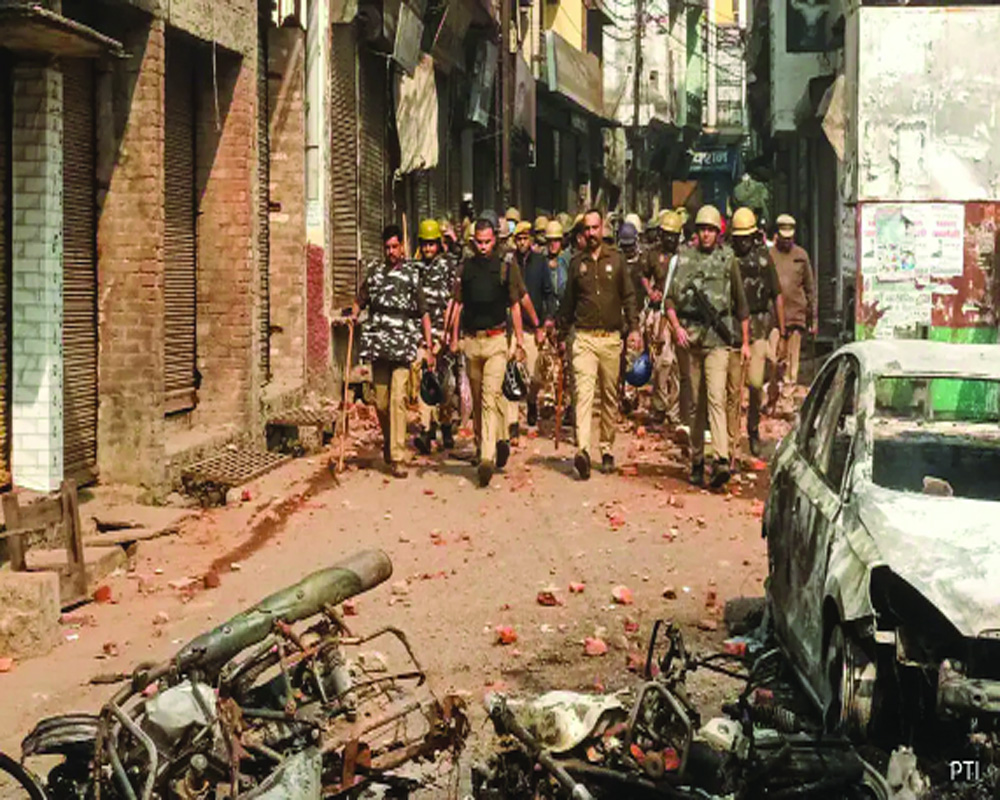All stakeholders must demonstrate utmost restraint to prevent any escalation of communal tensions in Sambhal
The town of Sambhal in Uttar Pradesh has become the epicentre of intense communal tension following a violent confrontation over a court-mandated survey of the historic Shahi Jama Masjid. The incident, which unfolded on Sunday, has claimed three lives, injured numerous others and raised pressing concerns about the fragile communal harmony in the region.The Shahi Jama Masjid, situated in Chandausi, Sambhal, is a centuries-old structure recognised as a ‘Monument of National Importance’ by the Archaeological Survey of India (ASI). Protected under the Ancient Monuments Preservation Act, 1904, the mosque became the subject of legal contention following a petition filed on November 19. The petitioners, a group of eight individuals including advocate Hari Shankar Jain and Mahant Rishiraj Giri, alleged that the mosque was built by demolishing a Shri Hari Har Temple in the 16th century under the orders of Mughal Emperor Babur. They claimed that the temple held immense religious significance for Hindus as the prophesied site of Lord Vishnu’s Kalki avatar.
The petition sought ASI intervention and public access to the site, accusing the mosque administrators of obstructing entry and the ASI of negligence in protecting the monument. The legal dispute led the Court of Civil Judge (Senior Division) in Sambhal to order a survey of the mosque, with a report due by November 29. The initial survey on Tuesday was reportedly incomplete, prompting authorities to schedule a follow-up on Sunday. However, tensions escalated as the survey team arrived, resulting in a violent clash between opposing groups.The confrontation saw stone-pelting, arson and the deployment of security forces. Three lives were lost, and several were injured, including police officers and administrative personnel. The violence has since been condemned across the political spectrum, though it has also sparked a heated debate over the motivations behind the survey and its handling. Samajwadi Party chief Akhilesh Yadav accused the ruling Bharatiya Janata Party (BJP) of instigating communal divisions. BJP spokespersons, however, defended the legal process. The situation in Sambhal remains tense, with heightened security measures in place to prevent further unrest. But are we seeing a pattern here? Some politically motivated individuals deliberately file petitions raking up controversy where none exists. Communal tension ensues and some people and party backs up the claim and polarisation is complete for politicians to exploit the situation. We have had enough of communal violence and surely this one can be avoided as ‘The Place of Worship (Special Provisions) Act, 1991’ is clear that all places of religion must be preserved as they were at the time of independence. The Shahi Jama Masjid row reflects the broader challenges of navigating historical grievances, communal sensitivities and legal mandates in a pluralistic society. The need for restraint and dialogue among all stakeholders is crucial to restoring peace and preventing further loss of innocent lives.


























